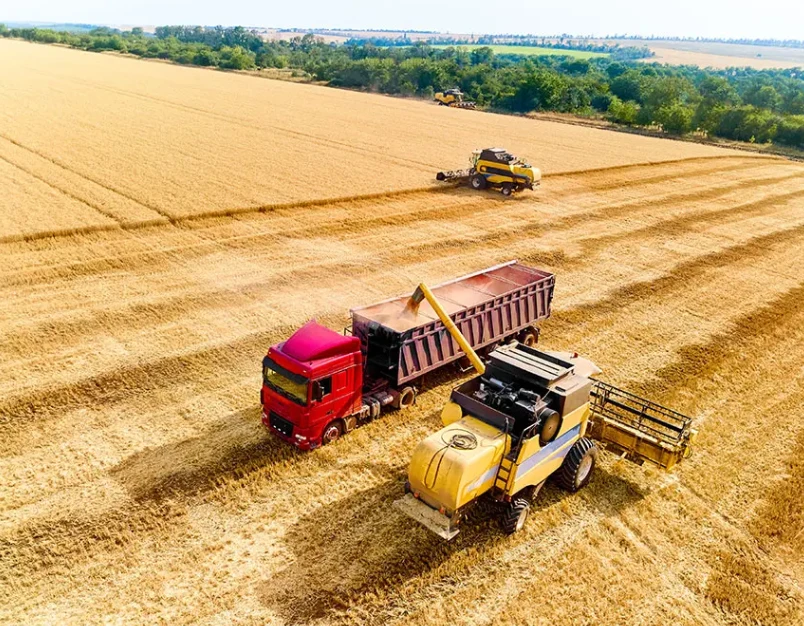Farms operate in a distinct realm of business fraught with unique hazards.
Recognizing these threats is essential for securing appropriate coverage, and comparing insurance quotes is vital for obtaining a policy that fits your needs without overpaying.

What Does Farm Insurance Cover?
Farm insurance safeguards against a spectrum of risks and assets exclusive to agricultural operations, encompassing:
- General Liability: Protects against bodily injury or property damage to third parties on the farm premises. Particularly crucial for farms and ranches hosting events, offering tours, or providing activities like horseback riding lessons. This coverage aids in covering medical expenses for victims and legal costs in case of lawsuits.
- Farm Products: Insures products grown or produced by the farm, such as wheat, grain, etc., against loss or damage resulting from covered disasters like fire or lightning.
- Livestock Insurance: Provides compensation to the farm for injury or death of livestock, including incidents occurring during transport. Commonly covered livestock include cattle, sheep, horses, emu, bison, and deer.
- Farm Machinery and Equipment: Covers essential machinery and equipment such as tractors, combines, and field equipment. This insurance reimburses for damages due to fire, lightning, theft, vandalism, hail, wind, or explosions.
Factors Influencing Farm Truck Insurance Costs:
Much like personal auto policies, the pricing of your farm semi-tractor insurance or commercial vehicle coverage hinges on a multitude of factors.
It’s important to note that while liability coverage is mandatory for farm trucks and semis as per state laws, comprehensive and collision coverage are optional.
However, considering your farm’s requirements, it’s prudent to discuss acquiring these coverages to safeguard your vehicles and assets.
Your insurance premiums may be affected by:
Deductible Amount:
Opting for a higher deductible could potentially lower your insurance premiums. For instance, increasing your original $250 deductible to $500 or $1,000 may qualify you for a slight premium discount.
Driving Record:
Insurers evaluate your driving history to gauge the likelihood of future claims, including any employees who operate your farm vehicles.
A history of violations like speeding tickets and collisions can lead to higher premiums.
Insurance History:
If you’ve made numerous claims in the past, you may face higher premiums for your farm vehicle insurance.
Vehicle Usage:
Consider where your vehicles are driven and what they’re used to haul—whether it’s crops, materials, or goods. The frequency of vehicle usage also impacts premiums.
Vehicle Make, Model, Type:
The value of your vehicle significantly influences insurance pricing. Whether it’s a semi, pickup, grain truck, or tractor, factors such as make, model, and year play a crucial role in determining premiums.
Number of Vehicles:
Farms often utilize multiple commercial vehicles. It’s essential to include all the commercial vehicles you wish to insure, along with their specific details, for accurate coverage assessment.